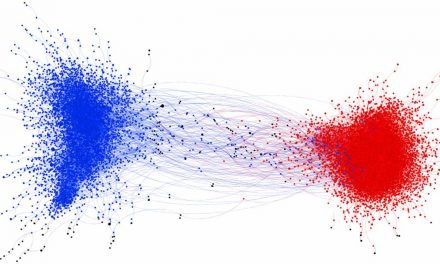The Broadcasters’ Audience Research Board, or BARB, tells us the who what, when, where, and how of watching British TV and computer screens. Jointly owned by ITV, Channel 4, Channel 5, Sky, the Institute of Practitioners in Advertising, and the BBC, it has been going in its current form for many years, shifting as required to keep track of changes caused by deregulation and the proliferation of consumer technologies.
The Board says that advertisers and broadcasters spend £7.5 billion a year on making, buying, promoting, and distributing televisual content. BARB’s boast is that it maintains and circulates the ‘currency that is trusted to assess the return on this investment.’ That currency is based on surveillance of a random sample of UK residents. A lugubrious son-of-BARB explains its work in this interview.
The Board recently published its annual Viewing Report. The Report makes very interesting reading, especially for the old-fashioned cybertarians among us who insist on clinging to that rather touching—if by now cliché—1990s faith in Schumpeterian magic and the supposedly exciting, disruptive practices of new-media audiences.
When those fantasies touch down on earth long enough to tell the rest of us that everyone is abandoning TV, they are typically based on something out of the following: breeders’ descriptions of themselves and their children over the weekend or on school nights; ‘the best which has been thought and said’ by innumerate, ignorant, and indolent newspaper narcissists/pundits/columnists, talk-show hosts, and advertising executives; or chats people share over watercoolers at work on Monday mornings.
Here’s the real story.
Warning/advisory: it makes for ‘a huge chasm between perception (in some quarters of the industry) and reality,’ because across age, class, and other forms of subjectification, the British spent more time watching television last year than in 2012.
But, I hear you cry, what of folks aged between 25 and 34, who are abandoning television sets at a rate of knots?
Aren’t they?
Sorry, but they’re not. The post-adolescent young are dedicating more time to watching TV: an increase of ‘1.4% year-on-year.’
As for diverse choices, ‘the only age group to have increased the number of television channels it views each week’ is people aged over 65. They are described by BARB, rather alarmingly I thought, as ‘increasingly promiscuous.’ Good luck to all concerned. In fact, the best of British BARB to you.
The decline in viewing by ‘children aged 4-15’ (3% ‘year-on-year’) can be explained not by cybertarianism, but the political economy: corporate, rather than consumer, choice. As the Board explains, ‘children’s TV has not been a high priority for the largest commercial broadcasters’ for years and years.
The child audience is simply not addressed in a serious manner by the Anglo bourgeoisie, other than as victims of our “education” “system” (if one can use those words together to refer to the sadistic examinations and punishments devised by the original-and-still-the-best Tory Blair and curated by Little England’s very own Terri May).
You won’t be surprised to learn that The Great British Bake Off, now lost to the carefree BBC, was the nation’s highest-rating program in 2016. Such figures reflect BARB’s research across devices and time: ‘of the 13.5m people who watched the second episode in the series, 6.2m did not watch it live—a new UK record for a timeshift [sic.] audience.’ Watching texts in this way has increased, but remains very much an occasional pursuit: ‘in January 2010, just over 6% of viewing was timeshifted; the figure is now over 14%.’
Interestingly, sports typically occupy less than a tenth of viewers’ time, despite the press obsession with men in shorts. And there has been a major decline in the number of people watching top teams in the Premier League this season.
The overall picture is clear—there’s something silly about basing one’s views about TV on, for example, junior’s stories about what he and his friends do; observing and codifying your own habits; or relying on hegemonic chatter. Such forms of talk just don’t say anything very significant about the televisual majority.
In BARB’s currency we should trust. They give pretty good surveillance.





